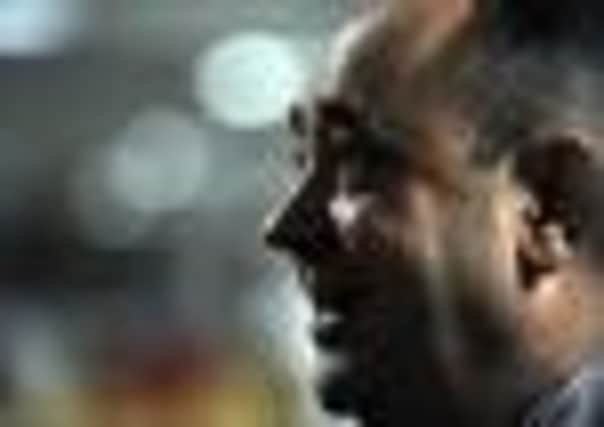Leaders: Alex Salmond tilts the playing field a touch more his way


Now all three major unionist parties are agreed that there has to be a further rearrangement of the devolution settlement, and one that goes further that the Calman package of powers now being legislated for at Westminster. Even more satisfying for him, the three unionist parties are united only by their rejection of independence. There appears to be little possibility of them working together, as Labour and the Liberal Democrats did in the Scottish Constitutional Convention, which produced the blueprint for the present devolved Scottish Parliament.
Johann Lamont, Labour’s Scottish leader, is to lead her own commission of inquiry. Apparently it will not just inquire into what powers might be transferred to Edinburgh, but what responsibilities might be devolved from Edinburgh to local councils. Indeed, Ms Lamont did not address the question of fiscal responsibility, preferring the vaguer formulation of seeking to identify powers that would work for the people of Scotland.
Advertisement
Hide AdAdvertisement
Hide AdMr Salmond will also have been entertained by the Liberal Democrats. They too have a commission of devolution inquiry, led by Sir Menzies Campbell. But the party, at its conference, revealed itself to be divided over whether the outcome of this inquiry should constitute a second question on the independence referendum ballot paper, though Willie Rennie, the Scottish party leader, is clearly against such a move.
With David Cameron positioning his Conservative Party behind the more-powers lobby, and a loose grouping of civic groups marshalling themselves to promote a form of maximum devolution, there now appears to be nobody in Scotland who thinks there should be little or no constitutional change.
Unionist parties now need to acknowledge two other things. First, recent constitutional history says that unity across political parties and with civic Scotland is the only proven way to deliver change. Second, Mr Salmond, through use of such phrases as the “anti-independence” parties, is attempting to lump them all together as a confused and conflicted cacophony which Scots cannot trust to deliver any constructive change.
Mr Salmond and the SNP are not confused about what they want and are not divided. By announcing that the campaign to win a Yes vote for independence will start in May, the SNP also looks positive and purposeful. The SNP still has many questions to answer about independence, but when voters who desire further change see those questions posed by politicians who have no clear prospectus for change of their own, they may start to agree with Mr Salmond. Unionist leaders have a long way to go before they can compete with him on level terms.
Free arts events shouldn’t pay licence fee
Last week we highlighted warnings by arts organisations that the spontaneity and informality which is a key ingredient of Edinburgh’s vibrant arts scene was under threat. Public entertainment licences, needed by anyone organising an event which the public pay to attend, have long been required. They provide some security to the public that the venue is safe.
But lawyers have advised Edinburgh City Council that such licences may now be required for free events as well. Since these licences can cost up to £250 to obtain, as well as necessitating time-consuming completion of paperwork, arts organisers feared that this costly bureaucracy will kill off poetry reading in pubs, live music in cafes, art exhibitions in bars and the like. They were right to do so.
Now councillors seem to be having second thoughts. Some may well vote against such a move when it is considered this Friday. We hope that by then, there is indeed a thumping majority against the legal killjoys and they follow councillors in the west.
Glasgow appears to have found a way round this particular problem, caused by new provisions of a Scottish parliament act intended to clamp down on “flash raves” and such like which may threaten public safety. Events which are free and for “cultural” purposes in Glasgow do not need a licence.
Advertisement
Hide AdAdvertisement
Hide AdSigns that Edinburgh councillors are prepared to be pragmatic and ignore legalistic nit-picking are welcome. There is no point regulating in the name of public safety if the regulation means there is nothing for the public to be safeguarded from.
RSNO’s touring efforts sound like music to the ears
In PUBS, hotels, and village halls across the scattered archipelago of the Shetlands, the 70 members of the Royal Scottish National Orchestra have been bringing their skills and sounds to a Scottish community who have very little chance of otherwise hearing Scotland’s finest classical orchestra.
Every year since 2004, the RSNO has spent a week in residence – playing with local musicians, teaching, and performing – in a part of Scotland which is rarely visited by a national arts body. This was their most prodigious effort yet, as concerts and other events planned by small groups from the orchestra on distant islands such as Fair Isle and Foula were jeopardised by the weather and power cuts.
This trip, a good use of public funds which the RSNO receives, should this be regarded as entirely about the orchestra giving of their time and talents to Shetland. The islands have their own distinctive music traditions, as was long recognised by the collaboration between distinguished violinist Yehudi Menuhin and Shetland fiddlers.
That spirit was alive and well at the weekend when the orchestra gave its major concert in Lerwick featuring a new work by island composer and fiddle player Chris Stout. It is not just the Shetlands which have been enriched by this visit, but the RSNO as well.